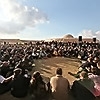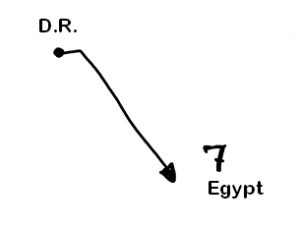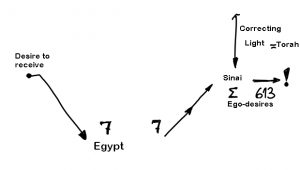The Torah Is The Instruction On How To Achieve Love
 The Book of Zohar, vol.7, Behaalotcha, Item 58: Woe unto one who says that the Torah comes to tell literal tales and the uneducated words of such as Esau and Laban. If this is so, even today we can turn the words of an uneducated person into a law, and even nicer than theirs. And if the Torah indicates to mundane matters, even the rulers of the world have among them better things, so let us follow them and turn them into a law in the same way. However, all the words of the Torah have the uppermost meaning.
The Book of Zohar, vol.7, Behaalotcha, Item 58: Woe unto one who says that the Torah comes to tell literal tales and the uneducated words of such as Esau and Laban. If this is so, even today we can turn the words of an uneducated person into a law, and even nicer than theirs. And if the Torah indicates to mundane matters, even the rulers of the world have among them better things, so let us follow them and turn them into a law in the same way. However, all the words of the Torah have the uppermost meaning.
The problem is that people do not understand the Torah, they do not understand that it describes the laws of nature that we must comply with in order to exist in a correct relationship, in a correct unity with nature.
Its most important law is “Love your neighbor.” So it is written: “We should interpret that it is known that it is impossible to achieve love of the Creator before a person is rewarded with love of people through “love your neighbor as yourself,” which Rabbi Akiva said is a great rule in the Torah.
For a person striving to fulfill it, this law includes all the other laws of the Torah.
Comment: This is very strange because the Torah mainly writes about murders but nothing at all about love.
My Response: It writes about how difficult it is to love your neighbor as yourself. The entire Torah is written about this.
Question: So the Torah is the instruction on how to achieve love for your neighbor?
Answer: Only that!
Question: And what are the Ten Commandments?
Answer: In order to fulfill the law of “Love your neighbor,” there are 613 (Taryag) of all kinds of sub-laws. They are included in the Ten Commandments, which are included in one basic law.
Question: If we take at least one commandment, suppose, “Do not steal,” what are we talking about?
Answer: “Do not steal” is natural. Is it possible to implement the law of “Love your neighbor” and steal? In this law, there are more internal, higher, although seemingly irrational rules. But in principle, it starts with purely human relationships.
[281836]
From KabTV’s “Spiritual States” 6/3/19
Related Material:
Two Levels Of Interpretation Of The Torah
The Oral And The Written Torah
The Oral Torah Is A Key To Penetrating Inside










